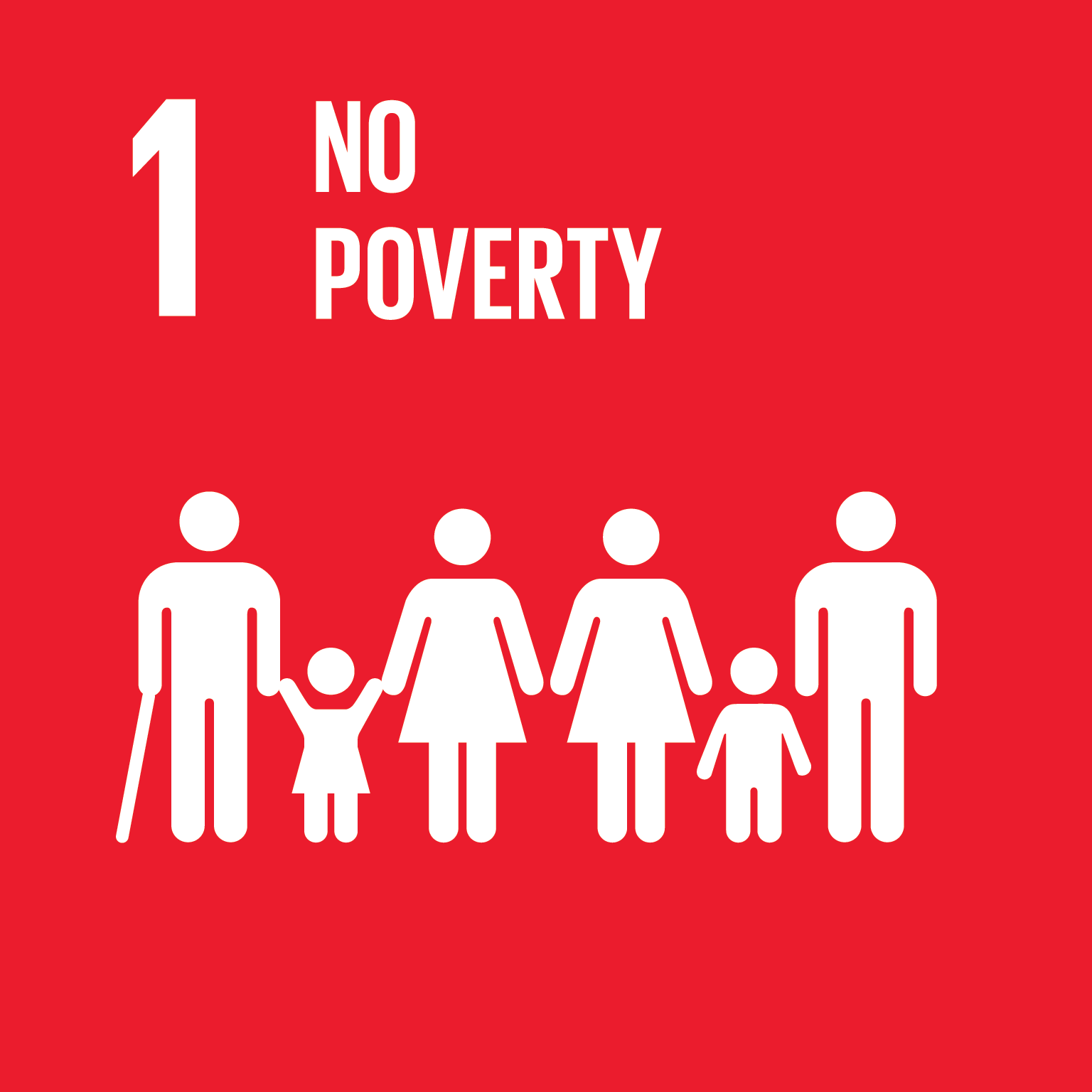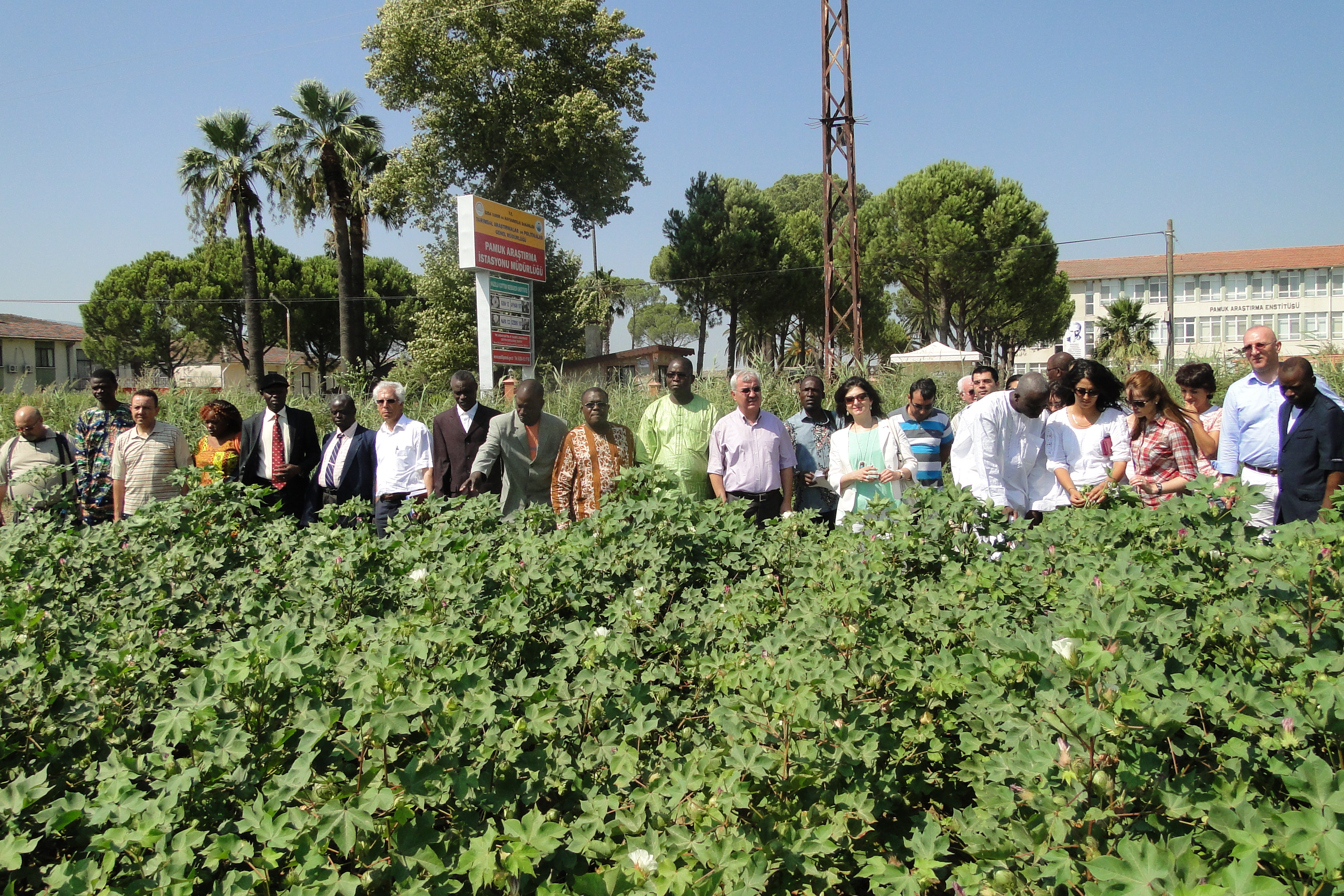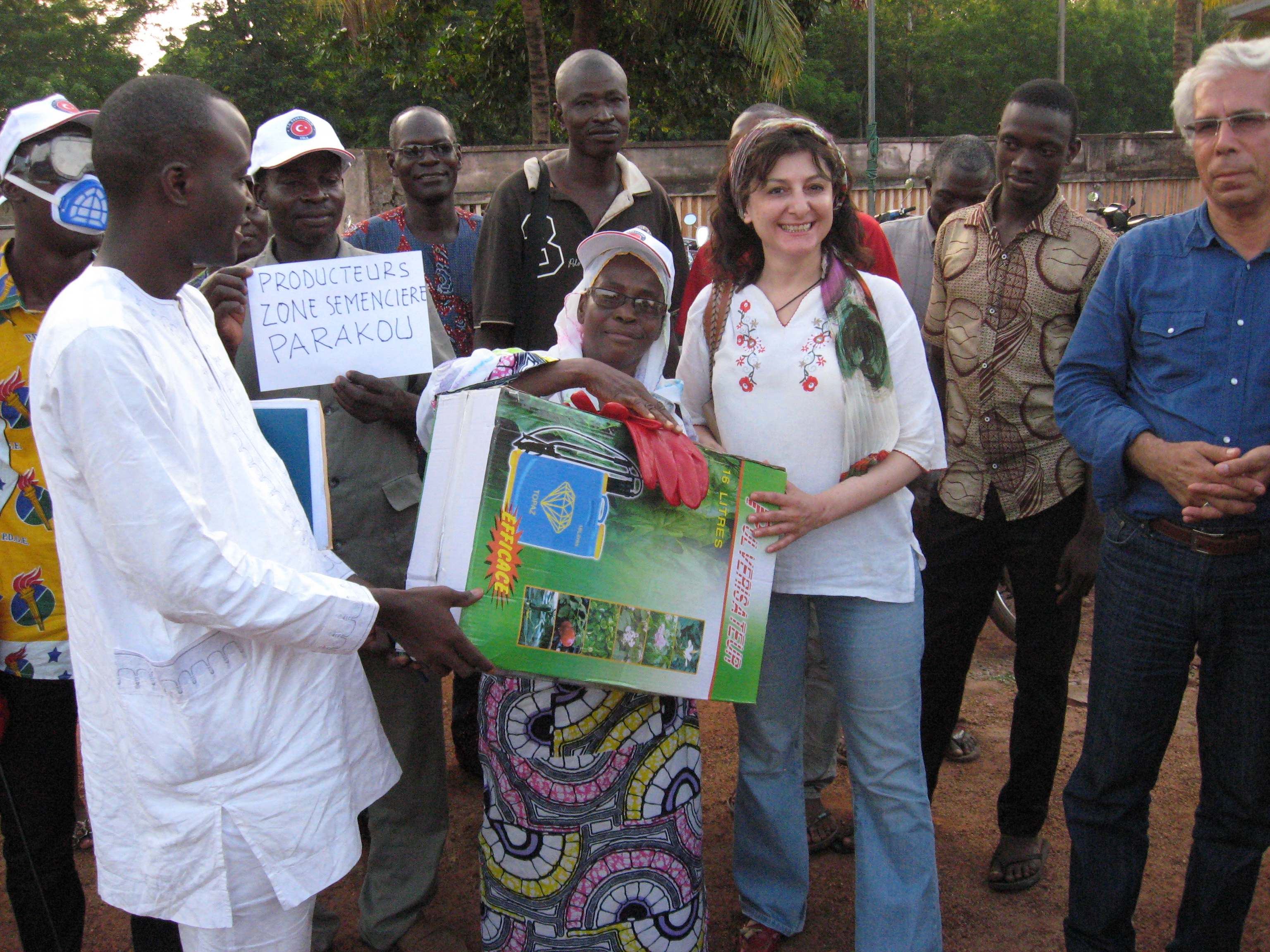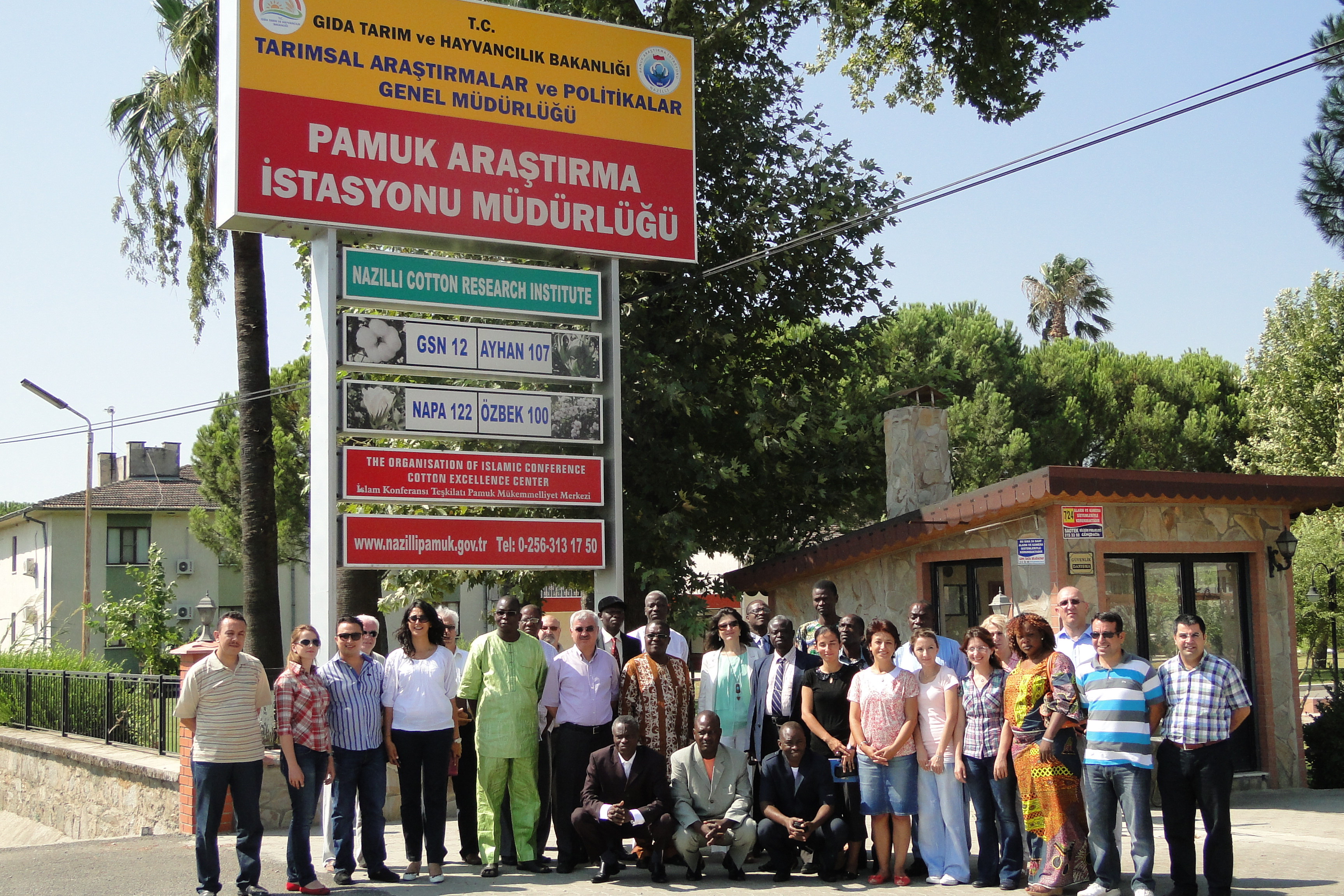 Improving Cotton Cultivation in Benin
Cotton cultivation capacity increased through equipment grants, capacity building and experience sharing
Improving Cotton Cultivation in Benin
Cotton cultivation capacity increased through equipment grants, capacity building and experience sharing

Challenges
Cotton is extremely important to developed economies, but for developing and least developed countries (LDCs), it serves as a safety net. It is a major source of livelihoods and incomes for many rural smallholders and labourers, including women, providing employment and income to some of the poorest rural areas in the world.
The population of Benin relies heavily on cotton farming. Forty per cent of the country’s GDP comes from cotton cultivation, which accounts for 80 per cent of all exports1. Farming communities in Benin have long had to develop weather and climate hazard mitigation techniques or so-called “endogenous” practices including crop diversification, irrigation, disaster risk management, etc. However, human-induced climate change is posing new risks for these communities. Agricultural modernization that does not destroy social and ecological balance, yet ensures food security for the poor, has remained a challenge for the country. There is a need to improve such practices to increase existing production.
Towards a Solution
To address this challenge, the Cotton Growing Programme was implemented with the support of the Turkish Cooperation and Coordination Agency (TİKA), in order to modernize production techniques and ensure the sustainability of cotton production. Turkish technical experience in the cotton sector was shared with the Beninese producers living in rural areas soil preparation and cultivation techniques, harvesting and agricultural mechanization. The project aimed to improve sustainable agriculture and foster rural development in Benin, thus contributing to Sustainable Development Goals (SDGs) 1 (No Poverty) and 2 (Zero Hunger), as well to Istanbul Programme of Action (IPoA) Priority Area 2 (Agriculture and food security).
In order to promote cotton growing, in the initial phase of the project, 500 back sprayers, hand hoses, masks, gloves and glasses were provided to the producers by TİKA. Then, a training programme was organized to share the technical details related to cotton growing and the experience of Turkey as a leading grower by yield in the world. Fifteen experts from Benin participated in the training course. In addition, five experts from Togo took part in these courses on topics such as soil preparation, procurement of the right inputs, cultivation techniques, biotechnology, diseases and pests, fibre and seed quality, agriculture economy and harvest, and agricultural mechanization, as well as theoretical classes. Exemplary plantations and enterprises in the surrounding region were also visited. Following training in Turkey, equipment was provided to the Bohicon and Parakou Research Institutes in northern Benin, where experts were able to work efficiently.
Under the project, the laboratory materials, computer, projection device and motorcycles to be used for on-site transport were provided by TİKA. In Benin, during the 2012-2013 cotton production season, a total of 250,000 tons of cotton were harvested on an area of approximately 300,000 hectares. During the 2013-2014 cotton production season, cotton was planted on an area of approximately 450,000 hectares. TIKA also provided four tractors and other agricultural equipment that helped producers obtain higher yields. Eight cotton species from Turkey were also shared with Benin. A total of 12 types of test studies were carried out in the established test areas, consisting of the aforementioned species and local cotton species. Later, observations were made by Turkish experts in terms of morphological and physiological characteristics and plant health at the test areas. As a result of the observations and tests in each phase of the production process, it was found that some species sent from Turkey were compatible with the region.
Hands-on training was also provided by experts on pest control in the test area. In this context, various chemicals, back sprayers and personal protectors to be used with pesticides were delivered to the authorities. Practical training was also provided on the appropriate use of the tools and chemicals supplied. In order to improve production capacity, 10 motorcycles, four seeders and one motor pump, a submersible pump, a generator, a water tank, water pipes and accessories were donated for use in the test areas. The yield per hectare in Benin increased significantly compared with the previous seven years, from 250 kg/ha to 350 kg/ha.
Experts from the Turkish Ministry of Agriculture and Forestry continued to communicate with their colleagues in Benin to provide information and transfer knowledge when needed, ensuring the sustainability of the project. In addition, seeds from Turkey are regularly donated to Benin by Turkish institutions.
With the project’s success, between 2018 and 2021, the cotton growing project was replicated by TIKA in Mozambique. As in the previous project, after analysing cotton productivity in the country, TIKA provided seeds suited to Mozambican climate, organized vocational training sessions and donated agricultural equipment.
Contact Information
Countries involved
Supported by
Implementing Entities
Project Status
Project Period
URL of the practice
Primary SDG
Primary SDG Targets
Secondary SDGs
Secondary SDG Targets
Similar Solutions
| NAME OF SOLUTION | Countries | SDG | Project Status | |
|---|---|---|---|---|
Accelerating the Implementation of African Union Treaties in São Tomé and Príncipe South-South learning from the Beninese judicial system’s experience in the application of human rights treaties to its national law |
Benin, Mozambique, Türkiye | 05 - Gender Equality | Completed | View Details |
Accelerator Labs Network Following collective intelligence methods to address emerging sustainability challenges and the growing demand for local solutions |
Benin, Mozambique, Türkiye | 08 - Decent Work and Economic Growth 13 - Climate Action | Ongoing | View Details |
Adaptation of 3PA to Urban and Displacement Settings Using South-South and Triangular Cooperation in World Food Programme Three-Pronged Approach capacity strengthening through cross-learning initiatives |
Benin, Mozambique, Türkiye | 02 - Zero Hunger | Completed | View Details |
Addressing Racial and Ethnicity-based Discrimination and Strengthening the Protection of Rural Afro-descendants UNFPA supports data disaggregation as a tool to fight racism and ethnic discrimination |
Benin, Mozambique, Türkiye | 01 - No Poverty 02 - Zero Hunger 03 - Good Health and Well-being 05 - Gender Equality 06 - Clean Water and Sanitation 11 - Sustainable Cities and Communities 16 - Peace and Justice Strong Institutions | Ongoing | View Details |
Adolescent Nutrition Programme to Address the Triple Burden of Malnutrition in Indonesia Nourishing today’s teens and tomorrow’s future in Indonesia |
Benin, Mozambique, Türkiye | 02 - Zero Hunger 05 - Gender Equality | Completed | View Details |


